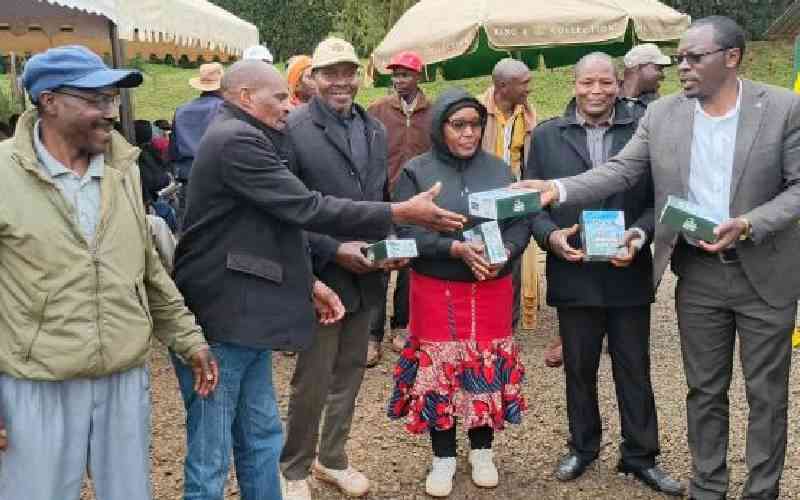More than 900 tea farmers from Kirinyaga County have graduated after completing a six-month intensive training program designed to transform their agricultural practices. The initiative, which targeted farmers affiliated with Kimunye Tea Factory, focused on empowering them with knowledge in modern and sustainable farming techniques.
The training curriculum covered agribusiness, climate-smart agriculture, farm production improvement, entrepreneurship, and gender mainstreaming. Farmers were taken through modules that emphasized regenerative farming as a transition from conventional methods, aiming to boost productivity while safeguarding the environment.
During the graduation ceremony at Nyaguthuci Primary School, stakeholders emphasized that the program seeks to benefit over 25,000 farmers across the Mount Kenya region. The long-term goal is to establish a new generation of farmers who can embrace climate-smart practices while diversifying their income sources.
One of the central lessons was the need for diversification. Farmers were encouraged not to rely solely on tea as their primary source of income. Instead, they were urged to invest in complementary ventures such as dairy farming, organic farming, and kitchen gardens. This approach ensures year-round income and cushions households from the volatility of relying on a single cash crop.
Farmers were also guided on how to replace aging tea bushes with new high-yielding and resilient varieties. This is expected to enhance both quality and quantity of tea production, strengthening the competitiveness of smallholder farmers in the global market.
Graduates expressed optimism about the program’s impact. Many noted that for years, tea had been the sole source of income for paying school fees, purchasing food, and covering other household expenses. With the new knowledge, they now see opportunities to create additional income streams. Families were also taught the importance of pooling resources, financial planning, and making collective investments to improve household stability.
Another major focus was climate change mitigation. Farmers were introduced to the use of biogas systems, which provide clean energy alternatives to firewood and charcoal. This innovation not only reduces household energy expenses but also minimizes environmental degradation. Additionally, the adoption of organic farming practices was highlighted as a way to cut down on chemical use, lower production costs, and improve soil health.
The program is expected to transform rural livelihoods by positioning farmers as key players in sustainable agriculture and climate resilience. With diversification, modern farming practices, and improved environmental stewardship, tea farmers in Kirinyaga and beyond are set on a new path toward food security and economic empowerment.

